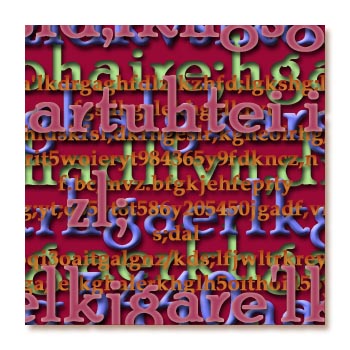 What’s in a name?or a word? Would a rose by any other name smell as sweet? To what extent does language influence our perception, and vice versa?
What’s in a name?or a word? Would a rose by any other name smell as sweet? To what extent does language influence our perception, and vice versa?
The answer can be found in etymology, the study of the history and origin of words.
?Language is fossil poetry,? wrote Emerson, but etymology’s more than just a dry history lesson. Language is a living, breathing thing that influences the way we think as well as the way we speak and write. If studying history offers us an understanding of where we’ve come from and where we’re headed as human beings, then etymology helps us examine how the words we use and choose paint a picture of society?and how changing these words can change our future.
For example, the French conquest of Britain a millennium ago transformed the English language, peppering it with French-derived words highlighting the ?higher? culture of the conquerors (who can forget the Ivanhoe discussion of how cow turned into beef‘similar to the French boeuf?when it hit the tables of the nobility?). As Britain expanded its trade outside Europe, words from Southeast Asia and North Africa became embedded in the English language. Even the rise of highbrow-lowbrow culture?as epitomized by William Shakespeare’s plays?is reflected in the language; Shakespeare himself invented dozens of words and expressions that we use every day without a thought.
Moving to more modern times, It’s not even necessary to look at major cultural shifts?like those surrounding racist and sexist language. Look, for example, at 2013’s word of the year, selfie. What does this say about current society? Values? How we communicate?
If you want to dig deeper, a fantastic resource is the online Etymology Dictionary, which provides origin information for words (including words with multiple meanings). It’s a captivating glimpse of a language That’s truly one from many. And if You’re a historical fiction writer or enthusiast, take note: besides its ability to help us understand language, the etymology dictionary is also an invaluable resource when You’re trying to create authentic settings and dialogue.
For those who are curious about tracking cultural usage shifts, Google’s N-gram viewer can generate usage graphs and charts. It’s helpful for comparing changes in popular or prevalent usage, particularly if you fall into the descriptivist grammar camp (the philosophy argues that grammar should describe usage rather than dictate it).
The way we communicate reflects our values and affects the way we act, so etymology provides a particularly interesting glimpse into who we are and what we’ll become. Study the past to fix the present to save the future?and think before you speak or write.
Christina M. Frey is a book editor and a lover of great writing. Chat with her on Twitter about all things literary @turntopage2.

